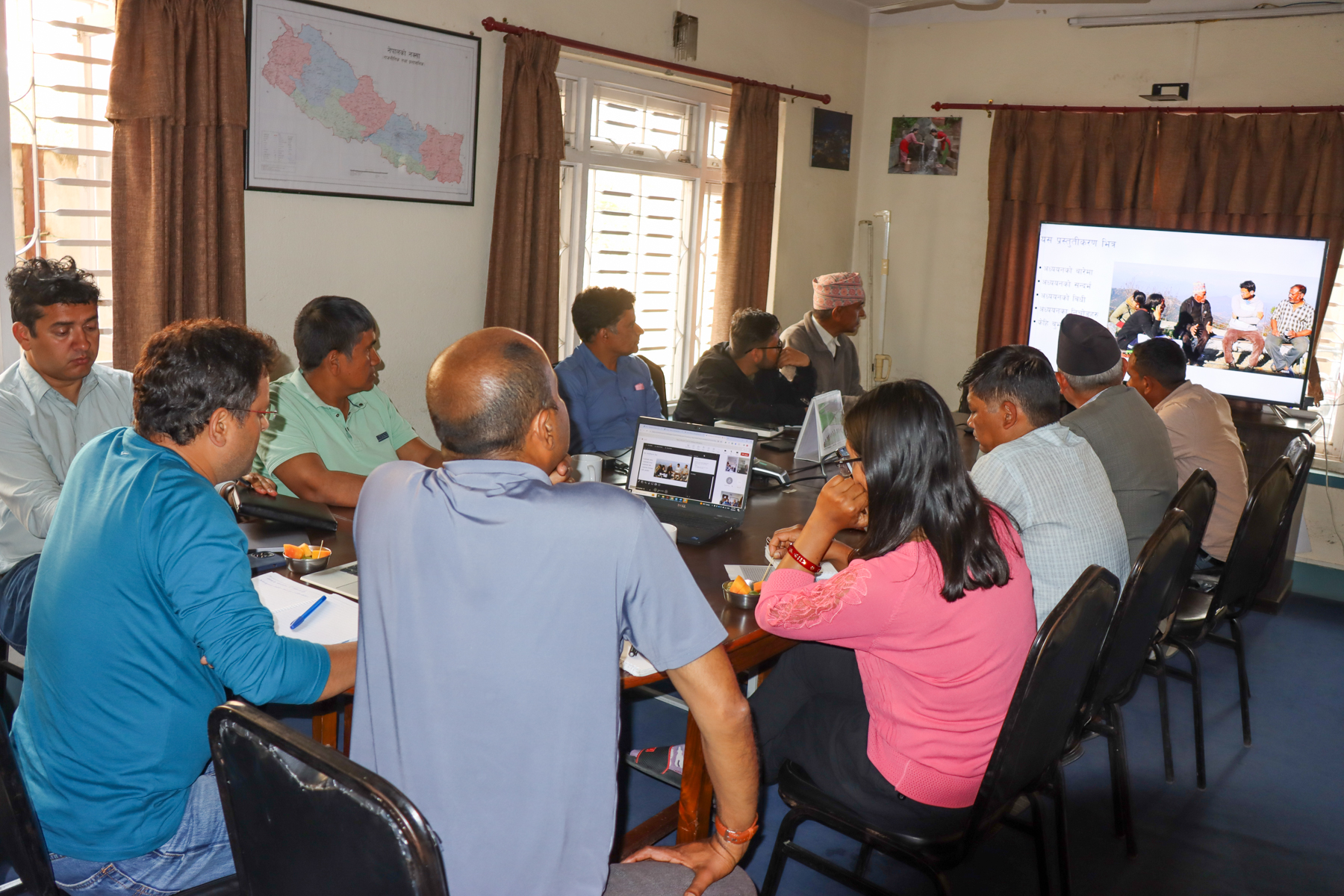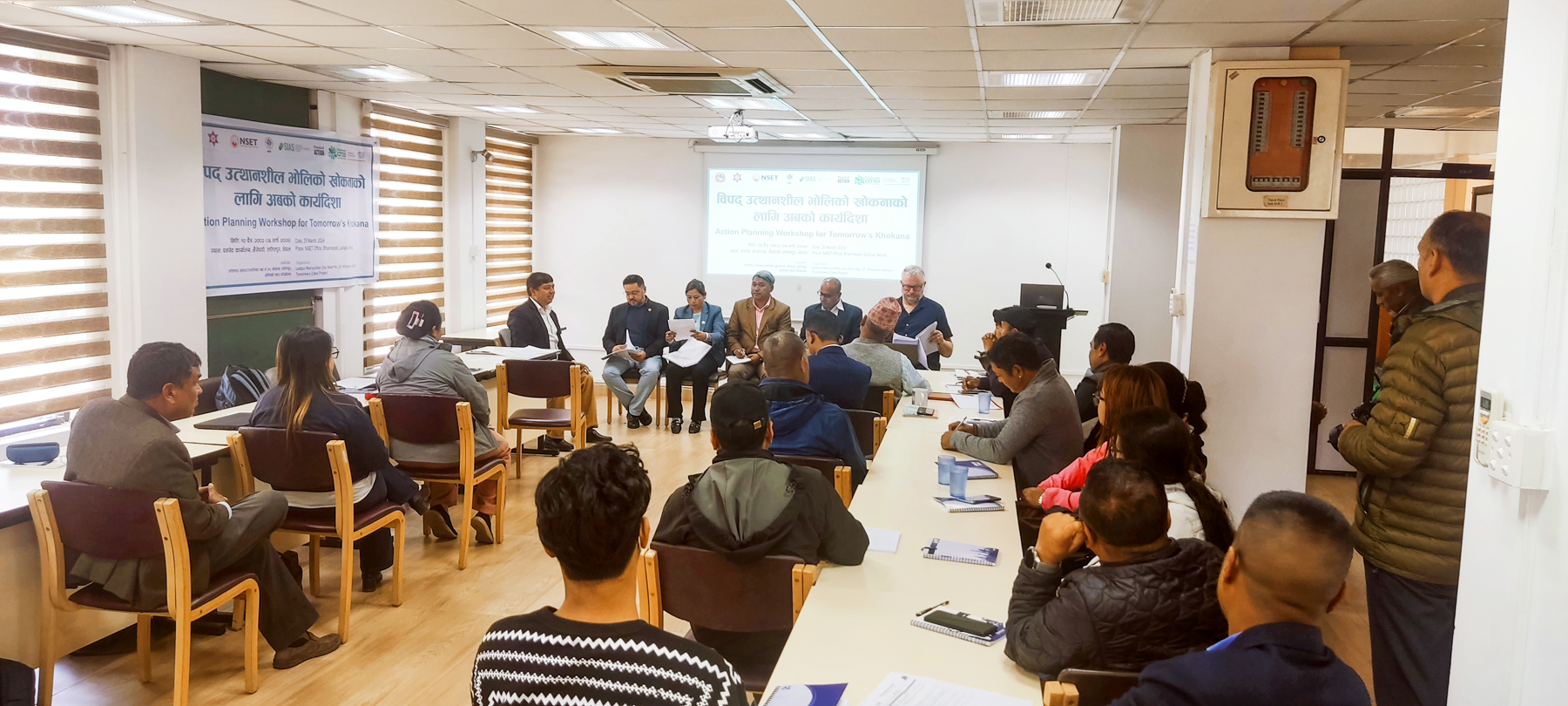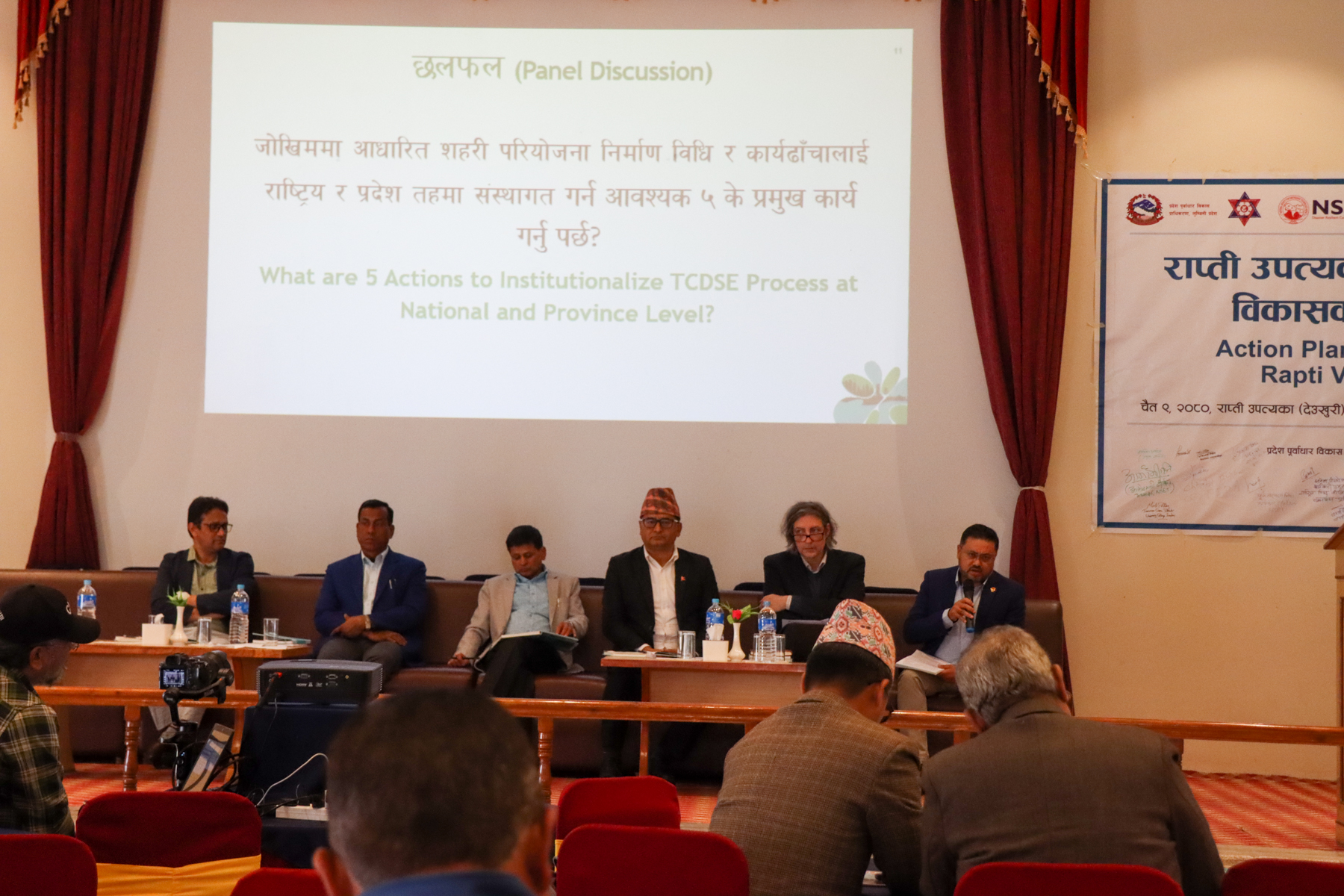SIAS hosted an expert consultation dialogue entitled ‘Sustainable water management in the context of rapid urbanization and environmental change’ on 20 July , 2023. Bringing together researchers, experts, and practitioners, the dialogue delved into current water management practices, focusing on the gaps, challenges, and possible ways forward for sustainable water management in rapidly urbanizing towns in the context of environmental change. Representatives from the Ministry of Water Supply, Department of Water Supply and Sewerage Management, Department of Forest and Soil Conservation, FEDWASUN, Community-based Water Users Committee and geohydrologist, watershed and water governance experts participated in the dialogue.
The event started with a brief presentation by Mr. Kamal Devkota, a former staff at SIAS and currently a Ph.D. student at KU Leuven Belgium, wherein he highlighted some pressing challenges for sustainable water management. The findings and insights were based on research SIAS has been doing for over a decade. Next was a moderated discussion which emphasized that collaboration among government organizations and research institutions is paramount for shared learning and evidence-based policymaking. Experts recommended more extensive research to unpack the current narrative of drying springs, the intricate links with recharge ponds and surrounding vegetation, and going beyond the engineering solutions and designing integrated water supply projects.
Another important issue discussed in the meeting was – water access for poor and marginalized people. The evolving model of water management focused on water distribution and increased tariff system has overlooked poor and marginalized. Some efforts to address these issues are incomplete, insufficient, and inadvertently add financial burden on those aimed to be included through subsidies. State – community contestation over resources, an issue that has resurfaced after a recent case of one of the municipalities in Kathmandu was also discussed. The discussants unanimously agreed that increasing contestations between local governments and community-based water users committees urgently calls for comprehensive and effective solutions.
Participants agreed that they will continue sharing key insights from research and policy engagement and contribute to the water-related discussions, enhancing the discourses through the state of art knowledge.




